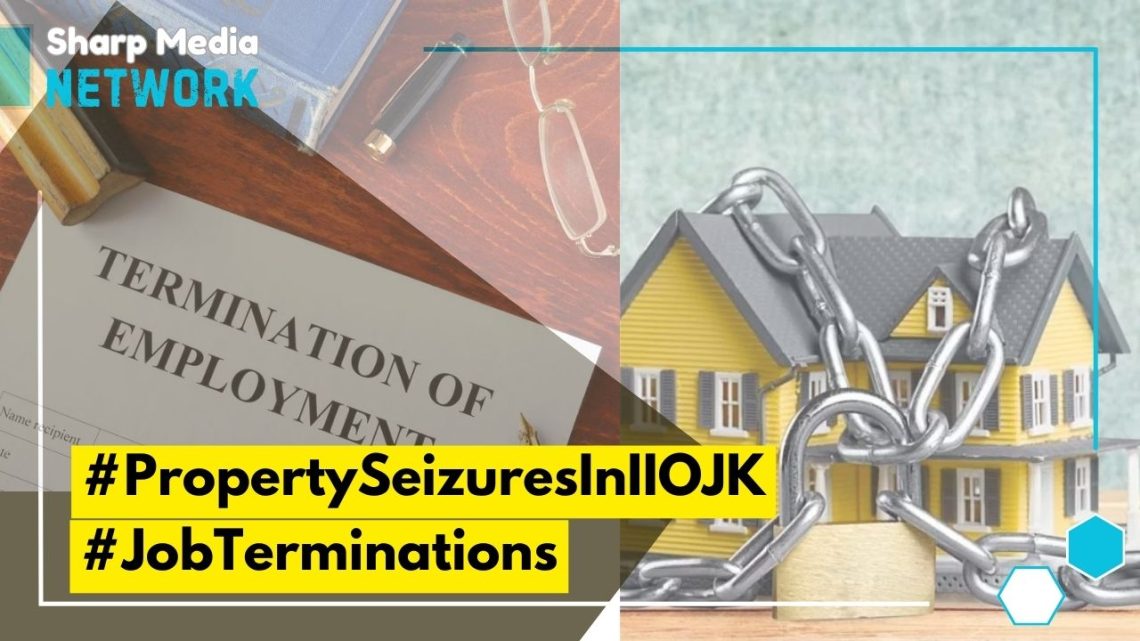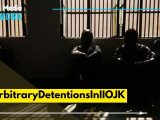
Property Seizures and Job Terminations: IIOJK Faces New Wave of Repression
April 11, 2025In yet another escalation of New Delhi’s hardline policies in Indian-occupied Kashmir, authorities have intensified their crackdown by seizing property and terminating local government workers—actions widely condemned as tools of political suppression.
In Indian Illegally Occupied Jammu and Kashmir (IIOJK), the administration under New Delhi’s control continues its aggressive campaign against the local population. Led by Lieutenant Governor Manoj Sinha, the regime has recently confiscated more property from Kashmiri residents, deepening concerns over the ongoing repression.
Just a day after seizing land from three individuals in Ganderbal, the authorities have now attached 6 kanals of land belonging to Mohammad Bashir, a resident of Bagyal Dara in Tehsil Haveli, Poonch district. The action was carried out by the police and was authorized directly by the Lieutenant Governor.
The land seizure was conducted under the controversial Unlawful Activities (Prevention) Act (UAPA), a law often criticized for being used to suppress dissent and silence pro-freedom voices. This seizure marks a pattern of property confiscation that has become increasingly frequent in the region.
A day earlier, the administration seized 9 kanals and 7 marlas of agricultural land worth approximately INR 3.47 crore in Ganderbal. The land belonged to three local residents—Firdous Ahmad Wani, Mohammad Ramzan Butt, and Mohammad Ayoub Ganie—all of whom were accused under the same draconian law.
Alongside these land grabs, the government has also taken punitive action against Kashmiri Muslims employed in the public sector. Two employees—Basharat Ahmad Mir, a police department wireless operator from Srinagar, and Ishtiyak Ahmad Malik, a senior assistant in the Public Works Department from Islamabad district—were dismissed from their jobs.
Their terminations were enforced under Article 311 of the Indian Constitution, which allows dismissal without trial or opportunity to appeal. Both were accused of involvement in anti-India or pro-freedom activities, despite the absence of formal legal proceedings or evidence presented in a court.
Since the revocation of IIOJK’s special constitutional status in August 2019, the Indian government—led by the BJP—has ramped up measures seen as targeting the region’s Muslim-majority population. From mass job dismissals to land seizures, the administration’s tactics appear aimed at eroding economic independence and altering the region’s demographic fabric.
Observers and human rights groups argue that these actions are part of a broader strategy to disempower local Kashmiris. By crippling their economic base and removing them from key employment sectors, the government is paving the way for greater control and possible demographic engineering through non-local settlement and job allocation.

